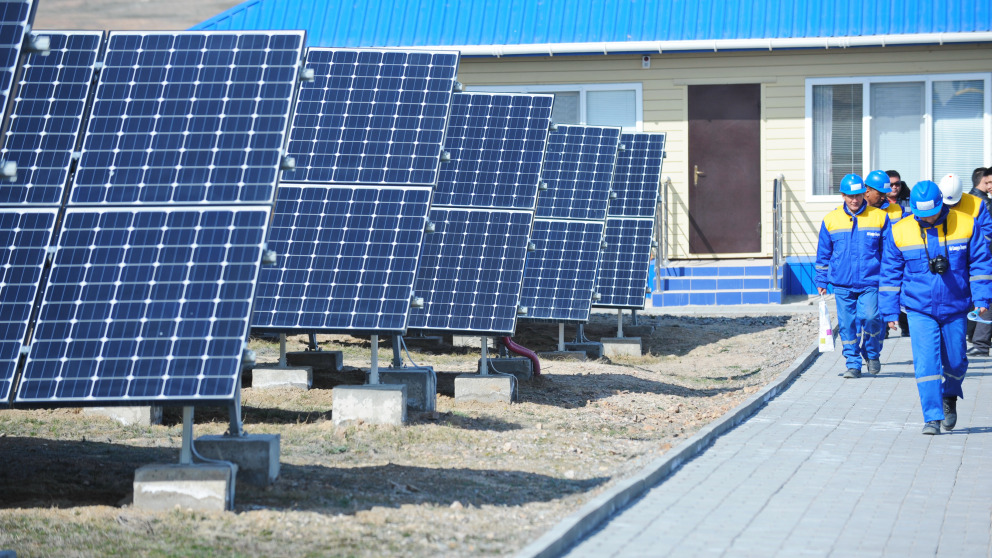Interest in Renewable Energy Slowly Growing in Resource-Rich Countries in Central Asia
05.06.2023
Fossil fuel industries dominate the economies of Kazakhstan, Uzbekistan and Turkmenistan. However, interest in green technologies, renewable energy, and hydrogen is also gathering pace – albeit unevenly – in the three Central Asian states, according to a recent study by RIFS researcher Yana Zabanova.

“Although Kazakhstan, Uzbekistan and Turkmenistan lack the political clout to significantly influence the global climate agenda, they are interested in benefiting from the geopolitical and geo-economic strategies of other major players such as China, the United Arab Emirates, Russia, and the EU. In seeking to attract foreign investment and technical expertise, the three countries aspire to improve the resilience of their own carbon-intensive economies," explains the political scientist.
Progress is uneven across the three countries: Kazakhstan is the pioneer in renewable energy in the region. Despite a late start, Uzbekistan is benefiting from the falling cost of renewable energy technologies and has attracted major industry players. Turkmenistan, on the other hand, has not yet taken steps towards adapting its carbon-dependent economy.
Moving up the fossil value chain
None of the countries is currently aiming to achieve a complete phase-out of fossil fuels. Instead, they hope to capture more value from their fossil resources (particularly natural gas), for example, by strengthening their gas processing industries or finding new export destinations. At they same time, they are beginning to view their renewable energy potential as a strategic resource that can bolster energy security and help decarbonise their economies. Kazakhstan and Uzbekistan have adopted climate neutrality targets for this purpose. Turkmenistan, on the other hand, has largely been an idle onlooker in the global energy transformation, despite the significant renewable energy potential of its wind-swept Caspian shores, vast deserts and excellent solar radiation levels.
“The extensive subsidisation of fossil-based energy and low energy tariffs associated with these policies present significant challenges for energy transitions across the region. Distorted price signals make it difficult for renewables to compete with traditional fossil fuel power generation," Zabanova explains. Inadequate infrastructure is also an obstacle to climate-friendly energy production. Some of the region's power grids date back to Soviet times and are in poor condition, resulting in substantial power losses and making it difficult to integrate renewable energy into the grid. There is also a lack of pipelines for transporting clean hydrogen and "green" seaports for handling e-fuels.
Rich in critical raw materials
Kazakhstan and Uzbekistan are currently looking for solutions, for example by retrofitting existing gas pipelines to transport clean hydrogen in the future. They are also exploring the possibility of producing low-carbon and renewable hydrogen or ammonia for domestic use and for export. Particularly in Kazakhstan, one of the world's most resource-rich countries, there is also renewed interest in expanding the production of strategic raw materials that are critical to the energy transition. Foreign investors are especially interested in rare earths, which are used in the manufacturing of high-tech products such as smartphones. Scaling up their extraction in Kazakhstan would enable third countries to reduce their dependence on China.
Publication:
- Zabanova, Y. (2023). Towards a Geoeconomics of Energy Transition in Central Asia’s Hydrocarbon-Producing Countries. In R. Sabyrbekov, I. Overland, & R. Vakulchuk (Eds.), Climate Change in Central Asia: Decarbonization, Energy Transition and Climate Policy (pp. 95-107). Cham: Springer Nature Switzerland. https://doi.org/10.1007/978-3-031-29831-8_8
Contact

